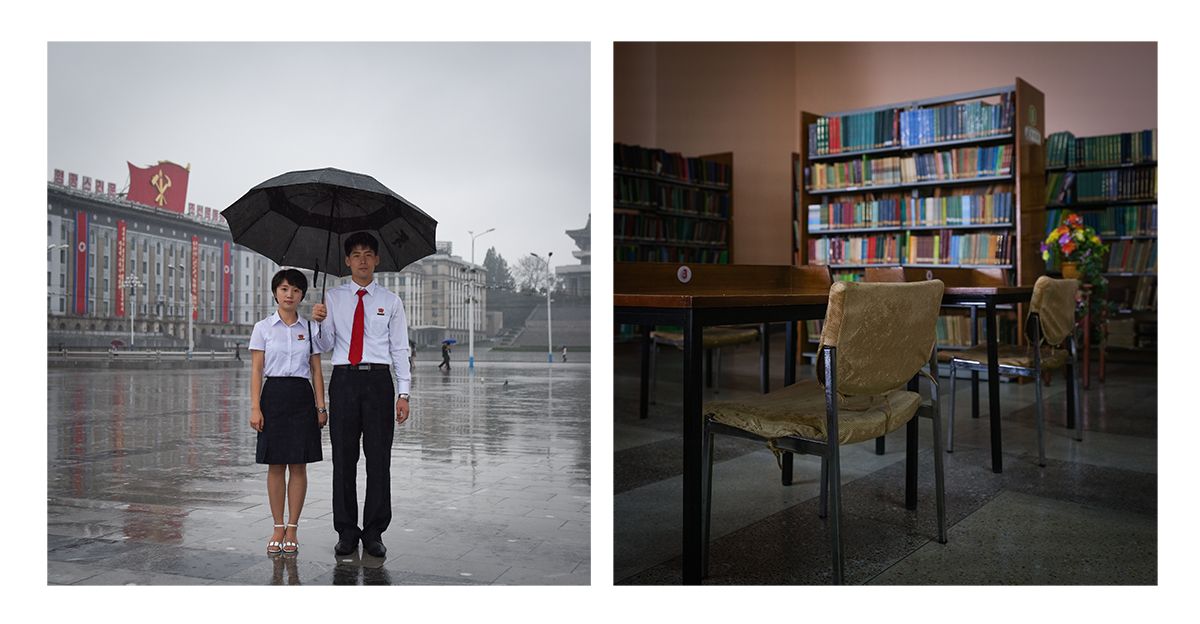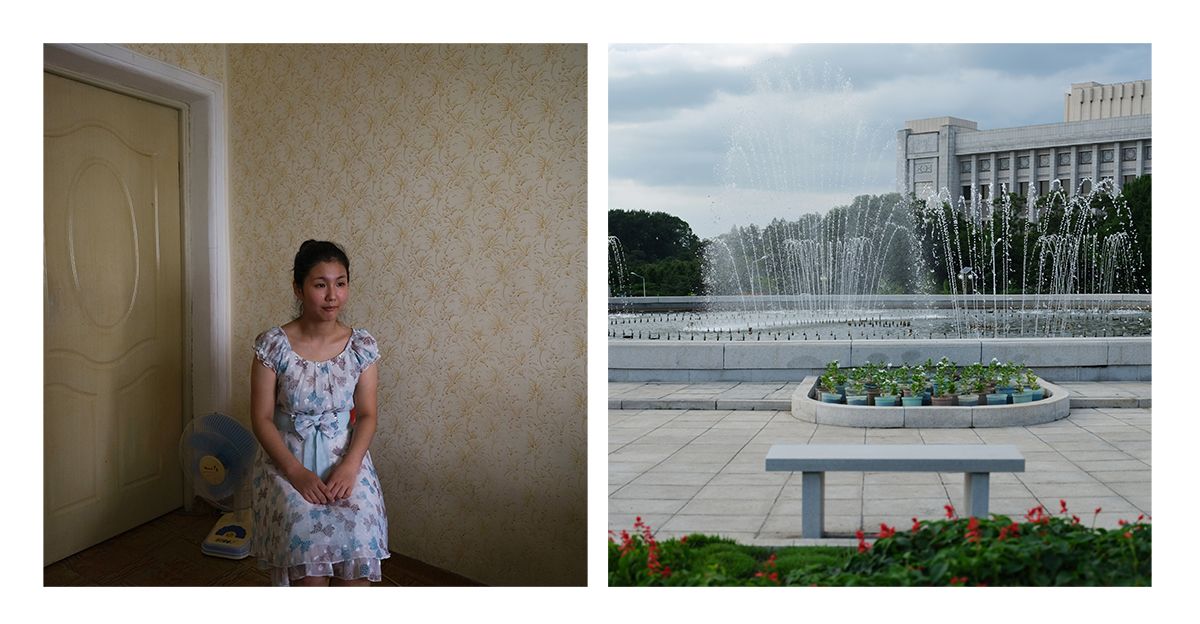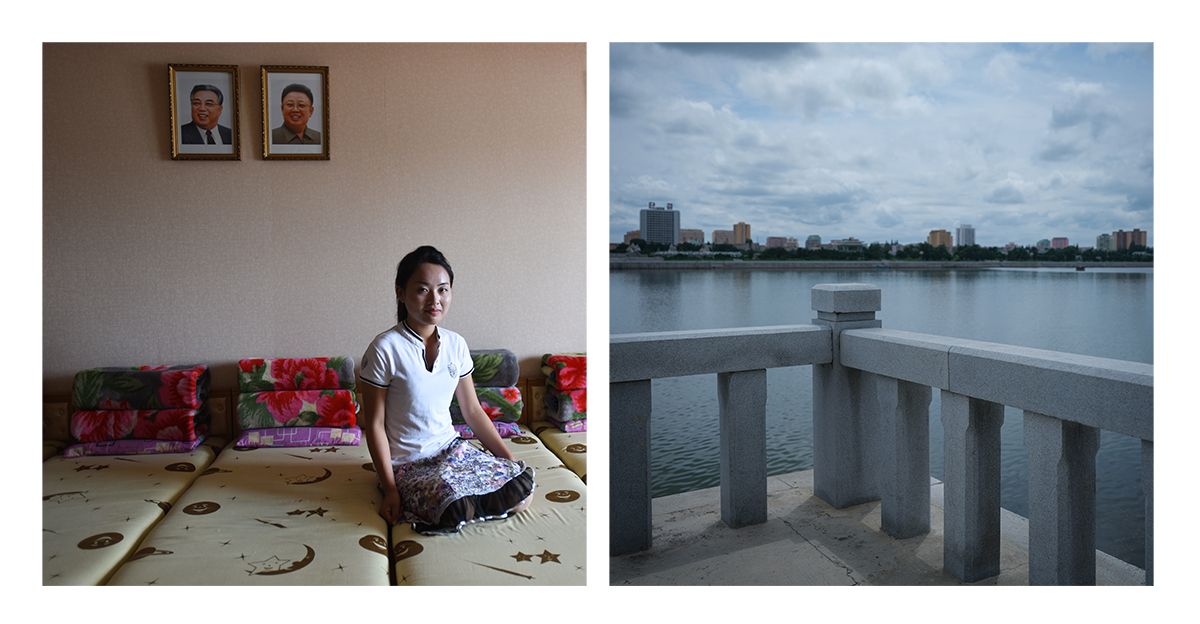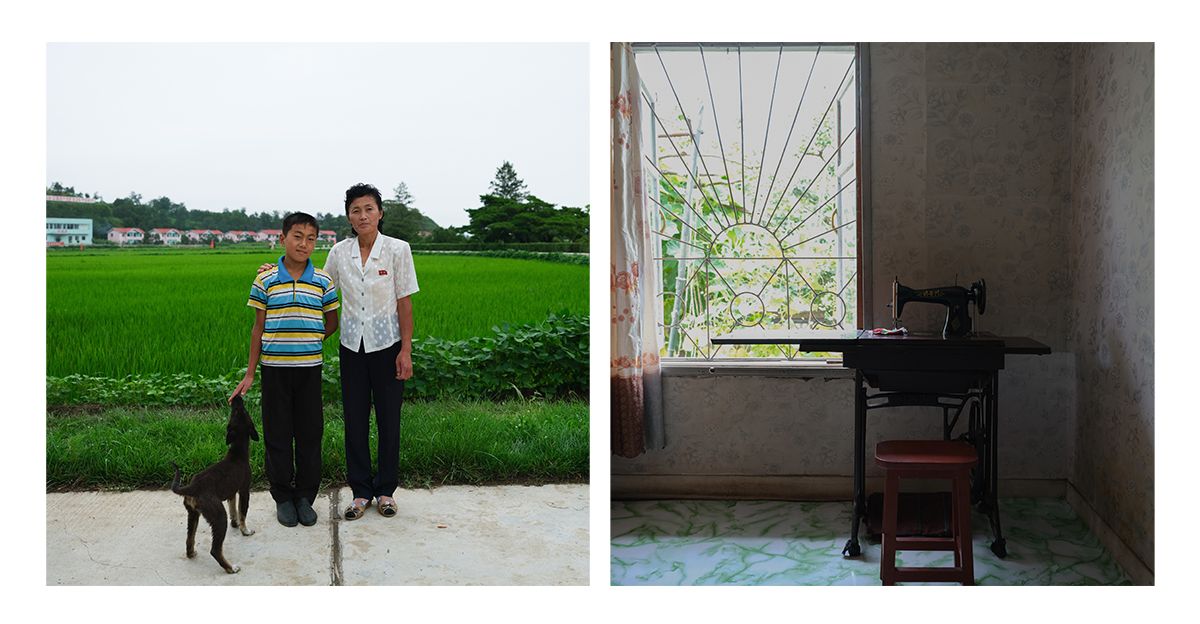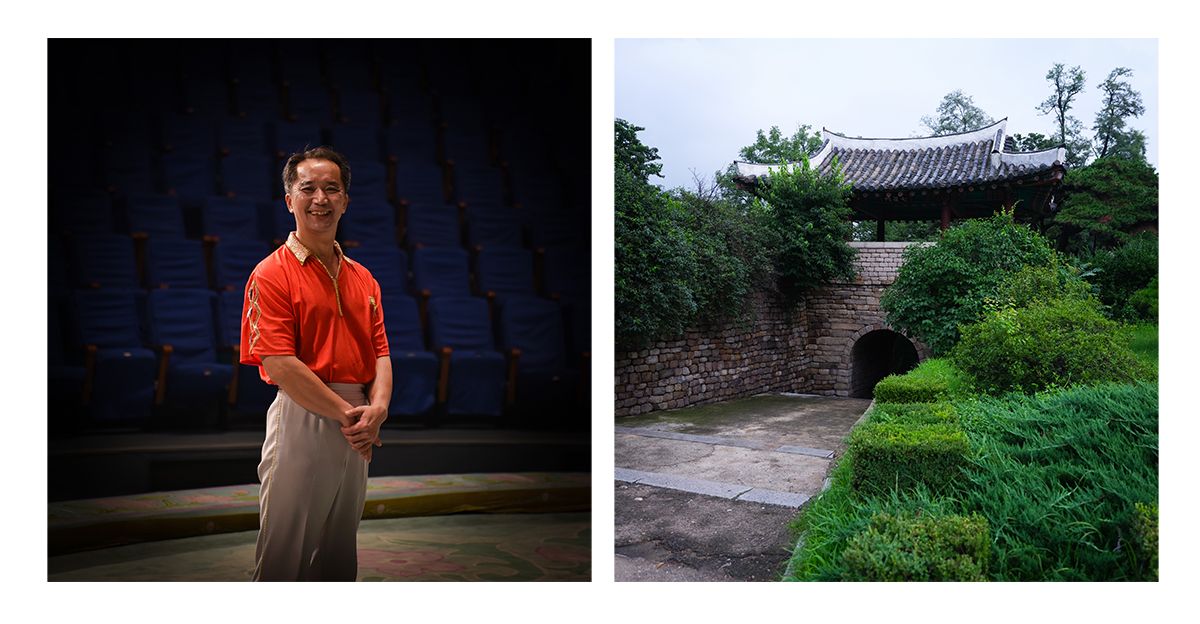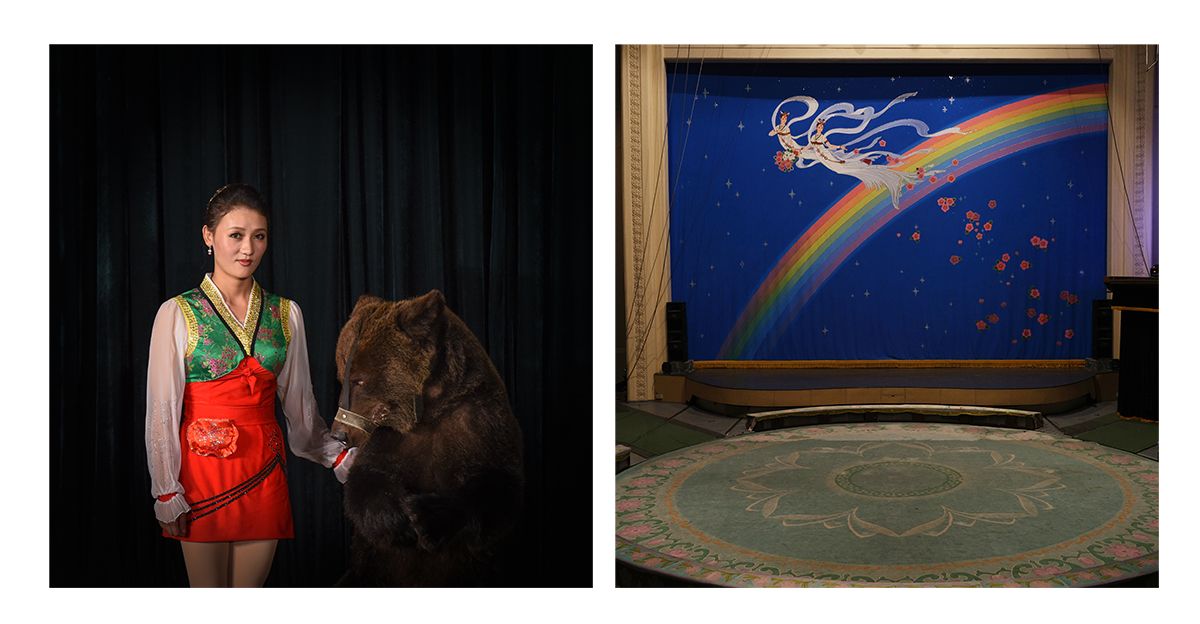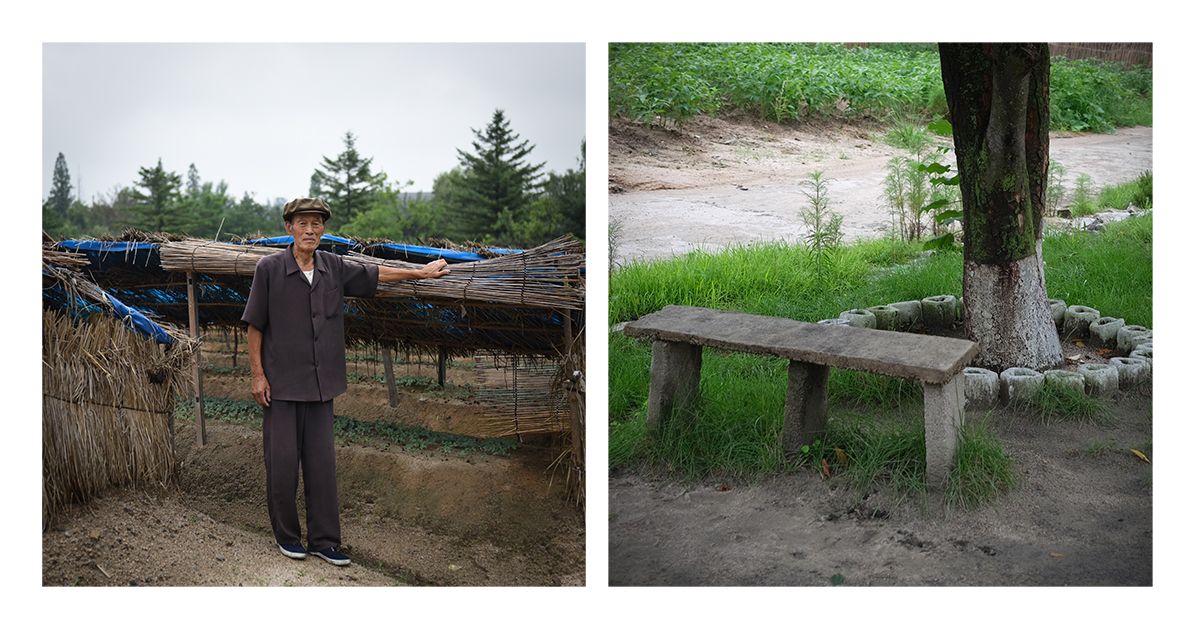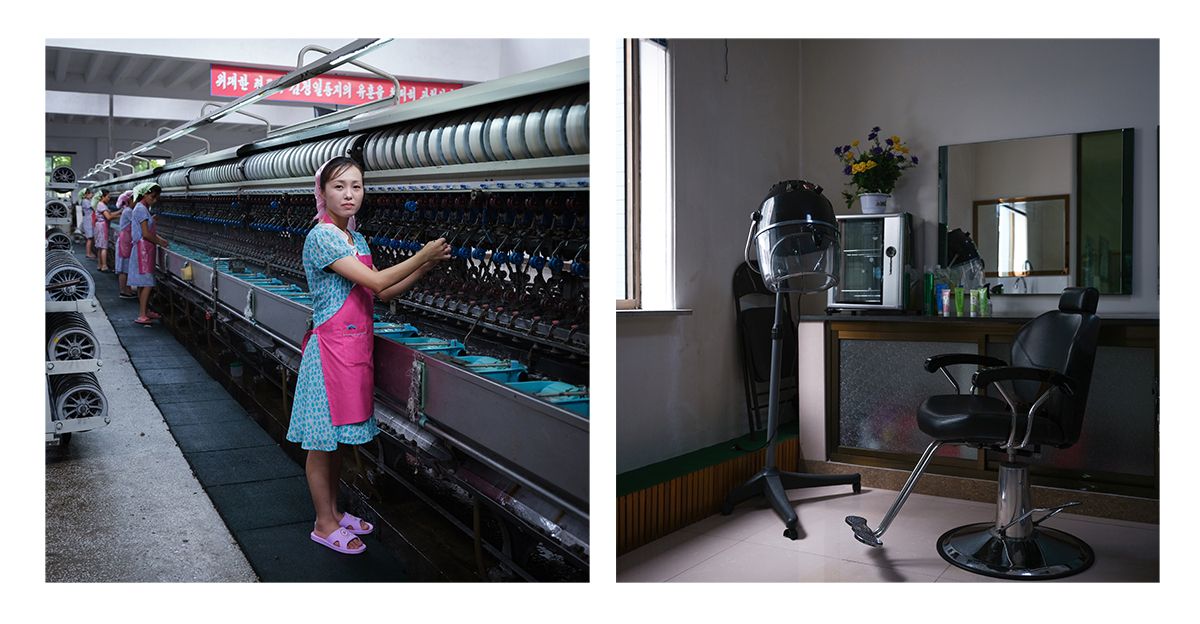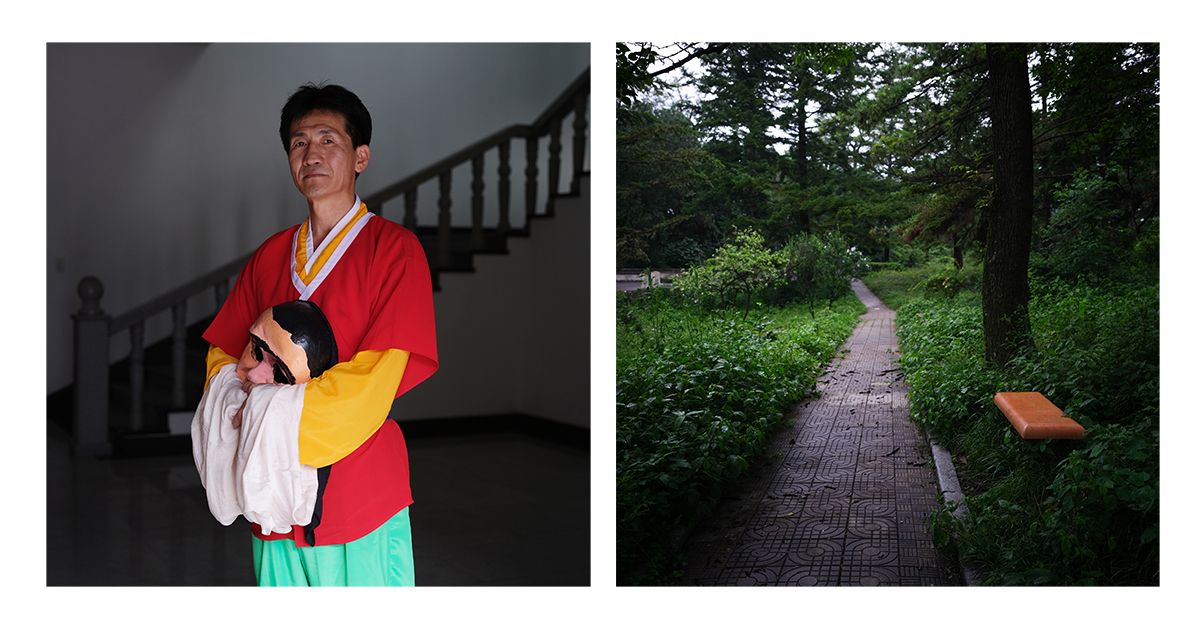A Favorite place
A Favorite place
“This farm is close to the demilitarized zone between the Democratic People’s Republic of Korea (North Korea) and South Korea. However, the current political and military situation does not affect my life and I am not worried”, says Kim Jesan, a 78-year-old North Korean ginseng farmer. “My life just goes on. I wake up everyday at 5 in the morning, have breakfast, walk for about twenty minutes to the farm and then start working in the fields at 7.” He speaks calmly and in a gentle manner, and a subtle smile appears in his face from time to time. The voices of residents living on the southern side of the border dividing the Korean peninsula are often reported, but stories about regular people from North Korea are rarely told, if ever.
I asked Mr. Kim about a place that he feels a personal connection to, a space where he becomes himself. He graciously guided the way and showed me a bench made out of concrete under a maple tree. “For twenty years I have come this bench during breaks. Here, I think freely about my work, my children and my family, and often image the day when Korea will reunite.” Our encounter came to an end, and he smiled and tipped his hat to say goodbye.
The political situation in Korean peninsula has always been fragile, and tensions last year have reached highest levels. The situation of the peninsula has dramatically changed this year.
I made 10th trips to North Korea since 2013. I took portraits of a variety of people, from farmers to university students to circus performers. At the end of the interview, I would ask each person the same question: Which place or space do you feel a personal connection to, a place where you can think freely about yourself and other things? The places they mentioned are all very different. For example, Pak Jin Ri, a visually impaired girl, talked about a park near her apartment saying “I can be myself every time I visit there. I listen to the sounds of water running in the fountain and sing a song in my head”. A female farmer named Kim Myong Hui in the eastern part of the country said, “I would say my home". She invited me to her house. Inside, by the window, there was a sewing machine made in Pyongyang. “It was already here when I moved to the house in 1991. My husband's mother used it for many years. The place where I feel peace of mind is my home".
A woman who works at a silk factory, Kim Jong Hyang told me her favorite place was a small hair salon located near the factory. Connections to places are personal, as is the choice of such places. To some, certain places have no particular meaning. And yet the very same places may hold deep importance for others.
A sense of place is a connection between a person and a place based on their own social and physical experiences. It expresses personal memory and identity.
The process of thinking about one’s personal sense of place involves freedom. By investigating about people’s special places in North Korea where personal voices of citizens are not really told by global media, I wanted to explore human feelings, and to tell something about their individual existence.
